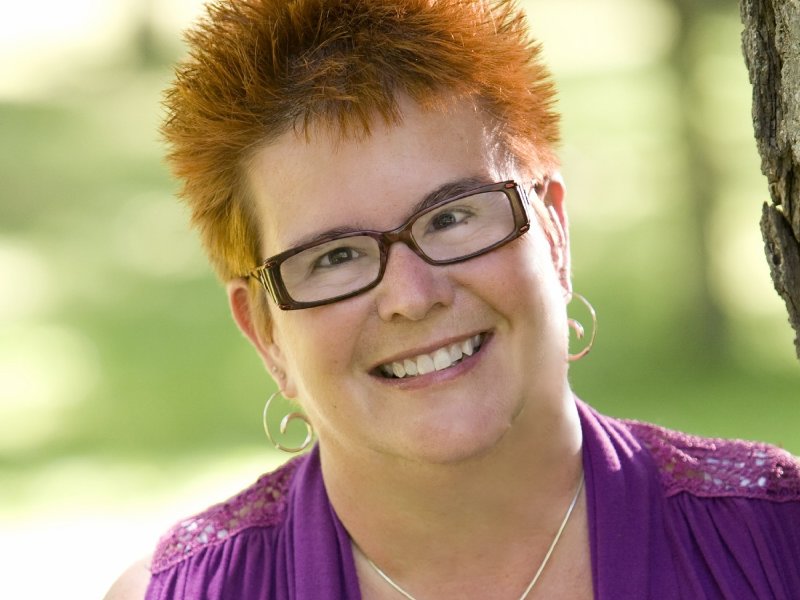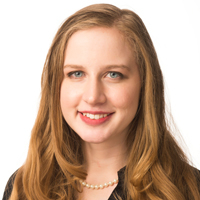Waukesha author Kathie Giorgio had no plans to write a sequel to her award-winning novel "A Home for Wayward Clocks."
She just wanted a massage.
"When I went on a book tour for ‘Clocks,’ people would ask me, ‘Oh, are you going to write a sequel?’ and I said, ‘Absolutely not,’" recalled Giorgio. "Actually, I was about 176 pages into another book that I was writing, and I was at a warm stone massage and I was laying flat on my face on the therapist bed and all of a sudden, it was like it scrolled across my eyes – I saw the opening line. ‘Cooley never expected to cry when her mother died.’ And I swore – I said, "Oh sh*t!" And therapist said, ‘Oh god, did I hurt you?’ And I said, ‘No … I have to go home, and I have to write a book.’"
So began the creation of "Learning to Tell (A Life)Time," which picks up the story of "Clocks" 16 years later. Clock curator James is dead, Ione suffers from garden-variety dementia, and Cooley Dander struggles to come to grips with the death of her estranged mother. In a series of captivating chapters that also stand as short stories, the reader comes to understand the complicated background between Cooley and her disturbed, alcoholic mother.
Giorgio will debut the book this weekend at the Southeast Wisconsin Book Festival at the University of Wisconsin-Waukesha. She delivers the keynote address on Friday, Sept. 20.
She sat down with OnMilwaukee.com to talk about what went into writing a sequel to "Clocks" and how she plans to address the festival’s theme of "literacy without limits."
OnMilwaukee.com: What made you want to continue the story of "The Home for Wayward Clocks" with "Learning to Tell (A Life)Time"? I read somewhere that you said you had no plans to write a sequel?
Kathie Giorgio: I honestly didn’t have any plan to write a sequel ... it just sort of unfolded, and I knew it was going to have something to do with Cooley’s mom, who really didn’t play that big of a factor in "Clocks," all we knew about her was that she was a roaring alcoholic, and that she liked to burn Cooley with cigarettes. She didn’t even have a name in "Clocks." And I didn’t know how she was going to feature in the book, but then it turned out that that was who the short stories were going to be about. So the alternating chapters in this book, just like in "Clocks," are complete short stories. They are all Cooley’s mother, who is now Mara Rose, and it takes her from the age of 10, until her death at 51, to kind of show how you become someone who burns her child with cigarettes.
OMC: So many people shy away from writing sequels because they can’t live up to the original work. Can you give me any insight into how you write a sequel that successfully carries on the story and its characters?
KG: I think, in a lot of ways that was definitely in my head—that most people say, "Oh, you know, the sequel was okay, but the first one was better." When the idea came to me, number one – I was so relieved that it was so long after "Clocks" because really,even though it’s a sequel, I call it an "independent sequel." You can read it without having read "Clocks" first. It is totally its own entity.
And I think that’s part of the secret – is that you don’t try to continue the story. That you don’t try to continue the whole same feel, that you go on to something else, and give yourself the freedom to explore new things about that environment and new things about those people, and you don’t necessarily stay married to the first book. And, so to me, that was it. That was what was so different. I basically had to say James is dead. It’s not about the clocks. Let’s move on. And, I’m hoping anyway, that is what is going to be the secret is to making it a better book.
OMC: So you are going to be one of the keynote speakers at the 2013 Southeast Wisconsin Festival of Books next week, right?
KG: Right. I am the opening keynote on Friday night.
OMC: What topics are you going to be addressing?
KG: Well the book is being debuted there. So, I will be reading from the book, and Stephanie Lecci from "Lake Effect," Milwaukee’s NPR show, is going to be there interviewing me, but before I debut the book, I am going to be talking about the Book Festival’s theme – which is "To Books and Beyond – Literacy Without Limits." And I was actually the one who came up with that theme, and so I want to talk a little bit about what that means to writers – literacy without limits – and what does that do for us as writers, and what does it do for readers.
OMC: Do you have any favorite Wisconsin writers?
KG: Lorrie Moore, for sure. Though I don’t even know if she still lives in Wisconsin. Jane Hamilton. Jesse Lee Kercheval.
OMC: I wanted to go back in time a little bit, and ask you about your short story collection, "Enlarged Hearts," that was released last year. Do you think that publishing is seeing short story compilations as more marketable again? I know short stories used to be a bigger thing, decades ago. Do you think that we are moving back in that direction?
KG: I think we are. Especially – this might be all the responsibility of eBooks – we are seeing more and more individual short stories getting published by themselves as an eBook. You know, people are picking them up for a quarter, or 30 cents, and they are starting to read them that way. And if you look at short stories in history, that’s really how short stories got their start. They used to be little, bitty individual pieces of paper that used to be sold at stores, and you would have to pick them up and just read one story, and then move on.
So I’m hoping this means that we are going to start bringing back the short story. It is my first love; it’s what I love to write more than anything. And I think that kind of shows in my novels, because even in a novel, I couldn’t leave the short story alone. I tried to insert it in there. We’re seeing magazines kind of pick up again with short stories, we are seeing anthologies being sold, so let’s hope.
OMC: You work with Main Street Rag Publishing Company, an independent commercial publisher in North Carolina. Do you prefer working with a smaller publisher, and what do you think are some of the benefits of that?
KG: I really do prefer working with a smaller publisher. I pretty much went through the gamut, I had four agents as I worked my way up, and New York has a very limited point of view as to what people want to read. If you look at some of the things that are coming out of New York, it does seem like the topics are all pretty much are one in the same.
The small publisher, the independent publisher, is pretty much what New York used to be. They’re edgy, they’re willing to publish a wider range of subjects. They’re willing to do a little darker subject, maybe some things that are more controversial. They’re moving away from the safe things to talk about, and what I particularly like about Main Street Rag is that since they are small, there’s a lot of individual attention. I mean, I talk with my publisher. I don’t speak with an editor way far down the line and never ever get to know who is the person that is behind the books that are being produced. I talk with him! You know? Which is so neat. And he is very, very supportive, he is very strong, and it is nice to have that kind of face behind you.
OMC: Do you have any advice for fiction writers in Wisconsin who are hoping to get where you are?
KG: Number one would be don’t give up hope. I think that the general feel out there is that the only alternatives in publishing are New York and self-publishing – and there’s so much more. There’s this whole world of the independent publisher in between and there’s so many of them now. Besides Main Street Rag, there’s Milkweed Press, there’s Permanent Press, Coffee House Press, and there’s just so many of them that are starting to step up and say OK, let’s get writing back to where it used to be, let’s get publishing back to where it used to be.
So don’t limit yourself to thinking, "well, if I don’t get into New York, I’m just going to run out and self-publish my own book." It’s so much better to be with a publisher – a real publisher. You get so much more support, so much more attention. And that would be No. 1.
And No. 2 would be to get yourself into a writing community. Of course, I am the Director of All Writers, so I’m sort of partial to that one, but the give and take in a workshop, and having another writers’ eyes on your work is so important too, because we’re close to our own stuff, and we don’t always see what’s really going on, and other people will pick out the errors just so much more quickly than we will.
Colleen Jurkiewicz is a Milwaukee native with a degree in English from the University of Wisconsin-Milwaukee, and she loves having a job where she learns something new about the Cream City every day. Her previous incarnations have included stints as a waitress, a barista, a writing tutor, a medical transcriptionist, a freelance journalist, and now this lovely gig at the best online magazine in Milwaukee.







